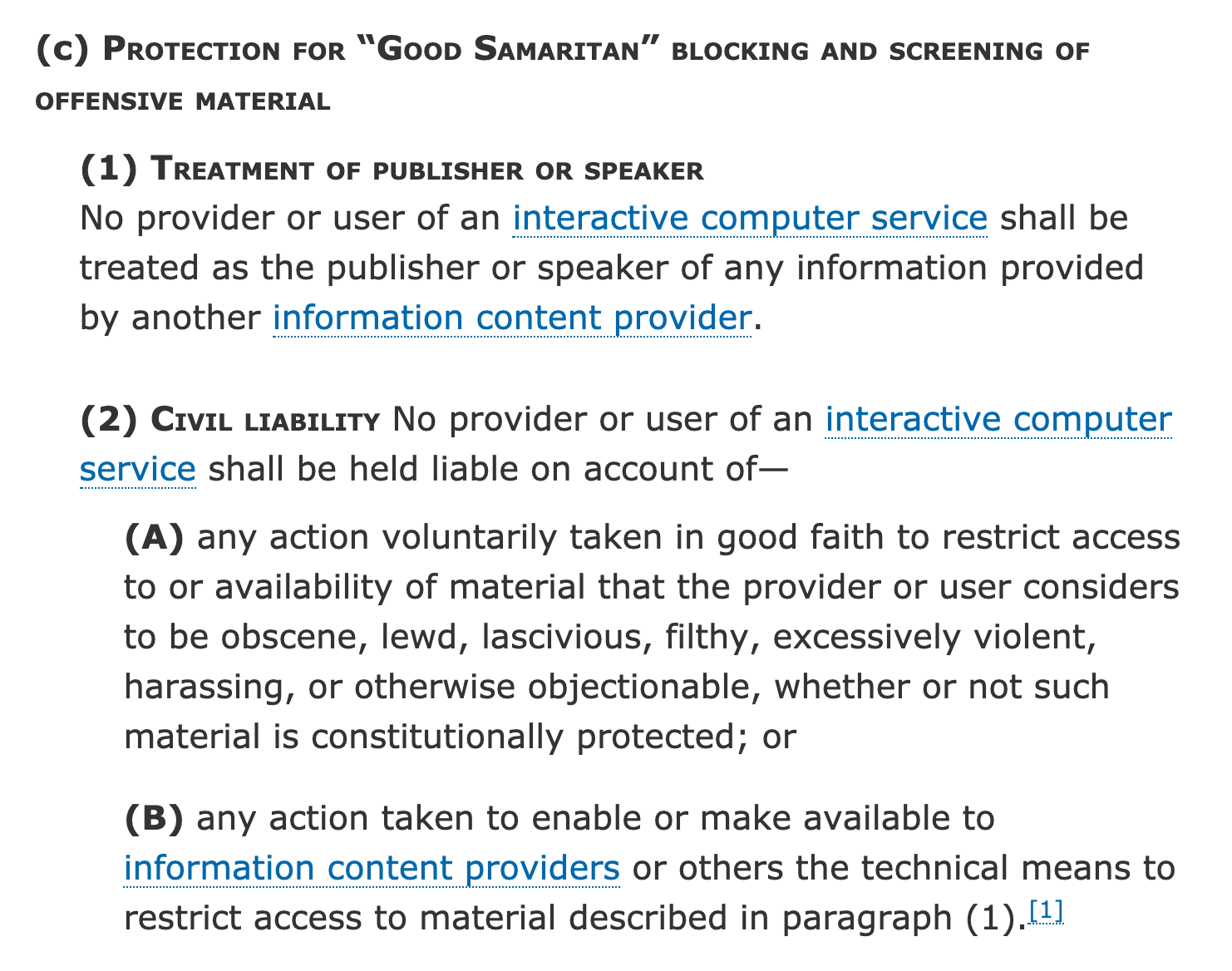
Section 230 of the Communications Decency Act [text] was enacted in 1996. Many commentators have hailed Section 230 as giving birth to the explosion of expression, businesses, social media, applications, and user-generated content on the Internet. The reason is that Section 230 shielded Internet platforms from potentially business-ending liability, while facilitating the development of new applications enabling individuals to publish their own content online. As Wired's Matt Reynolds puts it, "It is hard to overstate how foundational Section 230 has been for enabling all kinds of online innovations. It’s why Amazon can exist, even when third-party sellers flog Nazi memorabilia and dangerous medical misinformation. It’s why YouTube can exist, even when paedophiles flood the comment sections of videos. And it’s why Facebook can exist even when a terrorist uses the platform to stream the massacre of innocent people. It allows for the removal of all of these bad things, without forcing the platforms to be legally responsible for them."
More recently, however, Section 230 has become a lightning rod, criticized by the Trump administration and others who disagree with shielding Internet platforms for the potentially unlawful or harmful content posted by their users. The Trump administration and conservative Republicans contend that Twitter and Google, for example, are engaging in biased content moderation that disfavors them for more liberal positions or politicians. Others criticize Section 230 as being too permissive in letting social media companies off the hook, even though there is so much disturbing, if not dangerous, content shared on their platforms. This article explains Section 230 and then the recent criticisms that the Trump administration and others have raised....